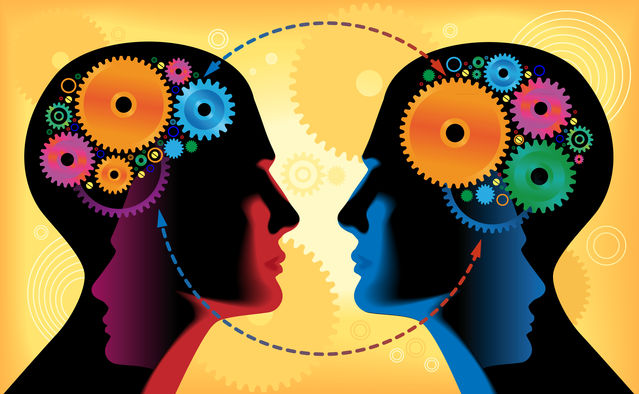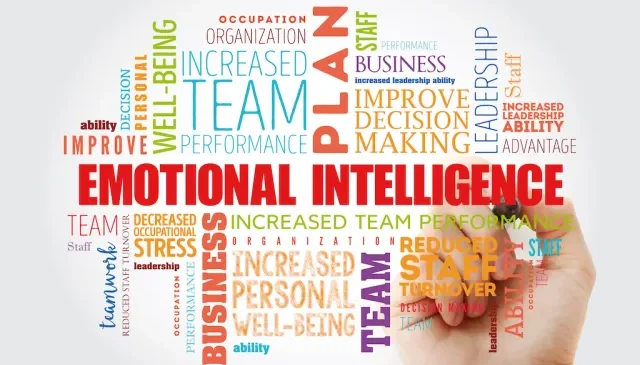Emotional Intelligence is a decision. The decision about how to behave, how to express, and how to interact. Our state of mind is associated with our thoughts, feelings, and reactions to situations. Emotion does not have any scientific definition but it relates to mood, temperament, personality, and motivation of an individual.
Emotional intelligence in today’s era is considered to be the number one character of leadership because it is connected with high performance, objectives achievement, and people management and as a key to growing business. According to a survey, 90% of high performers in the workplace possess high EQ, while 80% of low performers have low EQ. Simply put, your emotional intelligence matters a lot.
Here are some ways to become emotionally intelligent and conquer the world:
Be aware of yourself
Self-awareness will help to manage yourself by developing self-control, trustworthiness, and consciousness. Awareness of self and emotions can be developed. Spend some time recognizing areas you need to develop and intentionally making an effort to develop or strengthen that aspect of yourself. So, how can you become more aware of your strengths and areas for development? You could:
Rate Yourself
What do you think your strengths are?
Feedback from others: Keep yourself open to hears, what others say about you. Keep a notebook along with you and write your feelings on that day.

Communicate properly with yourself
Focus on becoming a stronger communicator wherever you are. People with strong emotional intelligence always use specific and concise words with themselves to communicate deficiencies. After that, they promptly address those deficiencies. Had a bad meeting with your boss? What made it so bad, and what can you do to fix it next time? When you can pinpoint what’s going on, you have a higher likelihood of addressing the problem, instead of just stewing on it.
Learn how to manage your emotions
Notice when you are in a negative or positive mood. Pause before acting or reacting. Imagine a performance conversation with your employer if you were in a negative state of mind versus a positive state of mind. What would be different? You need to work to shift your emotional state by taking a walk, talking to a co-worker or friend, listening to music, taking some deep breaths, drinking a glass of water or anything else that you find helps you.
Be Proactive and take responsibility for your actions
Emotional intelligence is a proactive approach hence reacting to the situation is not the essence of emotional intelligence. To be proactive, we need to have a plan to react to a certain set of circumstances and situations. We can have a deep analysis of the situation and people around us and can set standards reactions to be proactive in handling them. When things are going as per your plans, be happy, be motivated, and when situation or circumstance is so sudden and doesn’t help in your drive of this practice then be open to accepting criticism and tender apologies. In so many situations, things are not in our control.

Be empathetic- A great human attribute
Empathy is the state of understanding what other people are feeling. When interacting with others, begin to listen and understand where the other person is coming from. Then you can truly empathize to have the best interaction with them. It is just that you try to be in someone’s shoes to know how they feel and how you can help them emotionally.
Handle conflicts gracefully
Conflict and disagreements are inevitable in human relationships. If two persons are interacting, it’s near to impossible that they have the same opinions, expectations, and needs. However, that needn’t be a bad thing. Trust between two people can be strengthened by resolving the conflict in a positive, constructive, and healthy ways. When the conflict between two people isn’t perceived as punishing or threatening, it increases creativity, gives a feeling of safety and freedom in relationships. Try to be a bridge between two people who are falling apart
Always try to be in a healthy and light mood
Humor, laughter, wittiness, and play are natural antidotes to stress. They lessen your burdens and help you keep things in perspective. Laughter and wittiness bring your nervous system into balance, reducing stress, calming you down, sharpening your mind, and making you more empathic.
Talk about your feelings and be expressive
While we learn to keep our thoughts to ourselves, we should also have been practicing to express those feelings. You should not be afraid to expose your feelings, vulnerabilities, and thoughts. Practice being open about your feelings and then see how the world reacts.
Listen, listen, and listen
Speak only if it objectively improves the conversation. Otherwise just listen and absorb!
Follow the steps above as suitable to you and allow yourself to begin harnessing the power of emotions-and use that power to work for you, instead of against you.







![Ta11672 ssy to Auto Connect: A Comprehensive Tutorial [2024]](https://dgpedia.com/wp-content/uploads/2024/09/ta11672-ssy-to-auto-connect.jpg)
